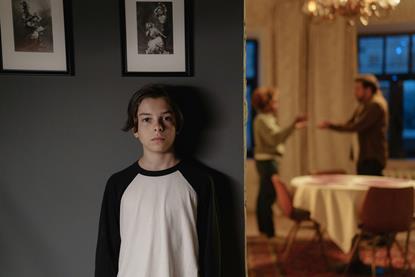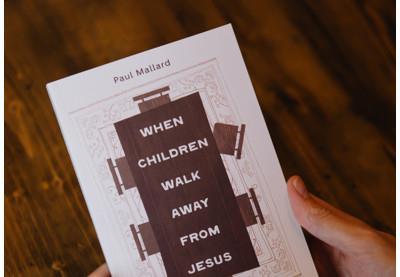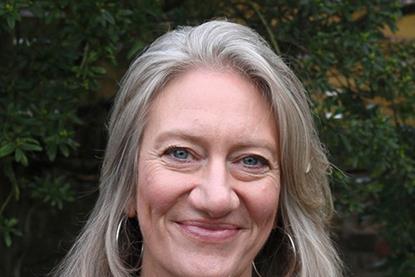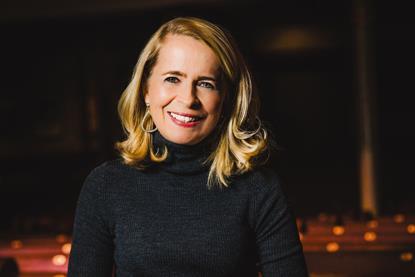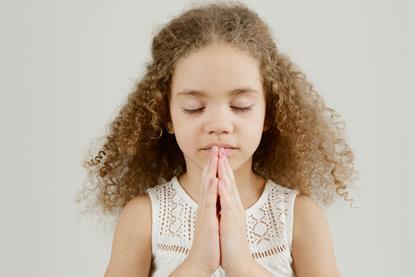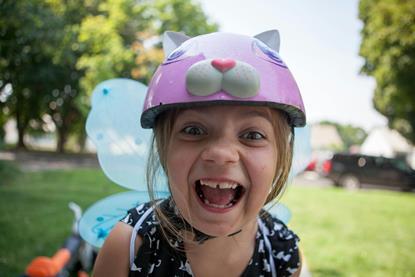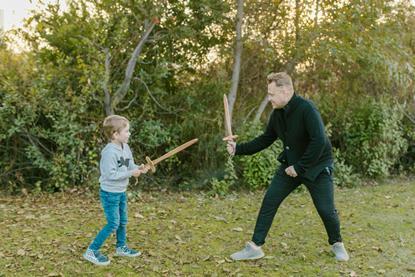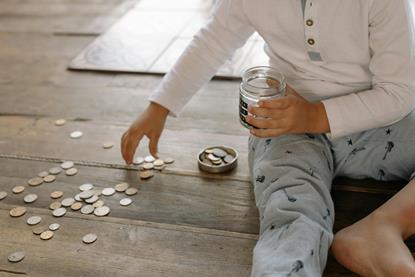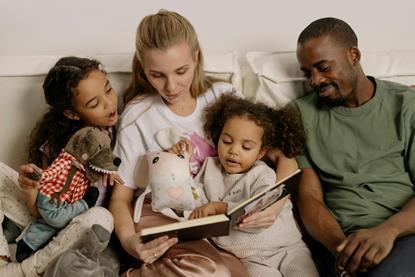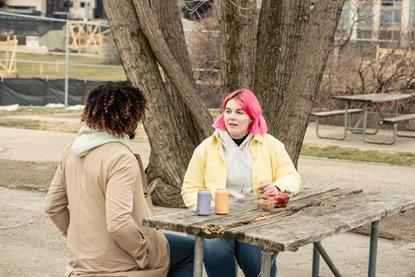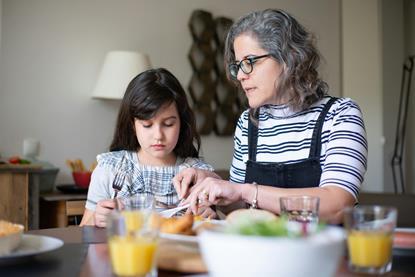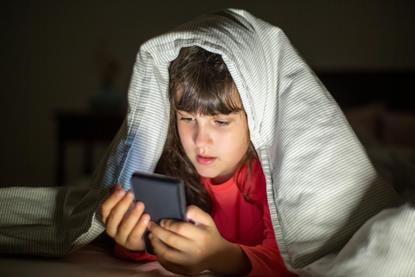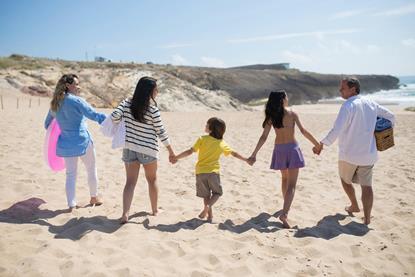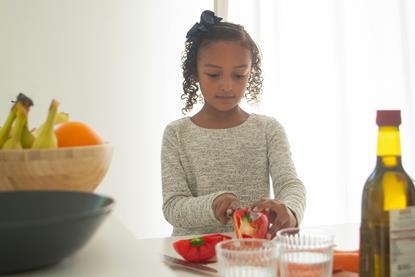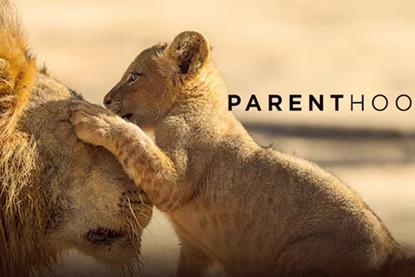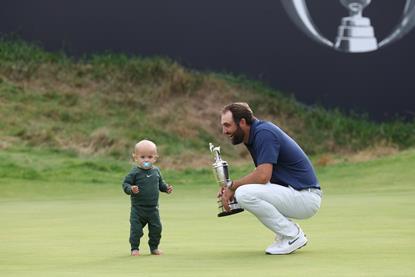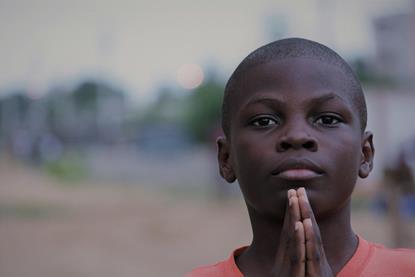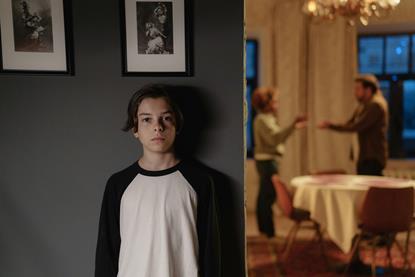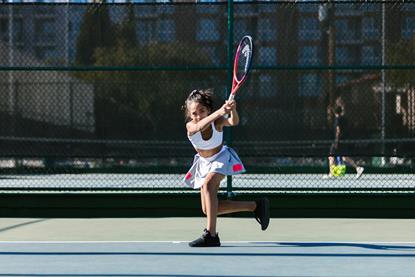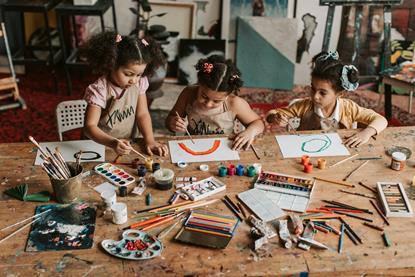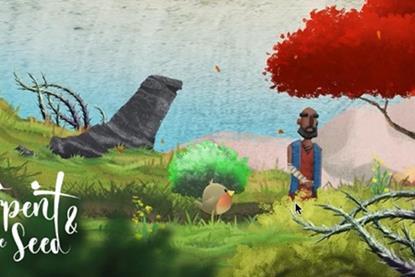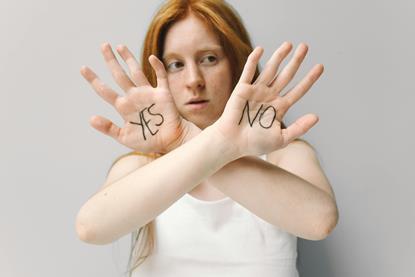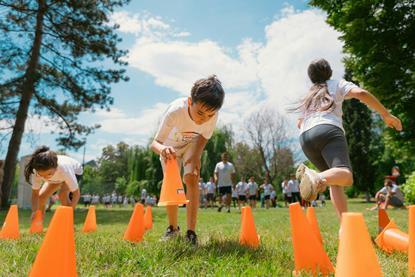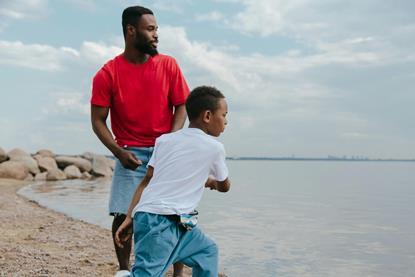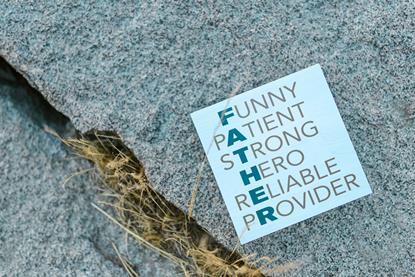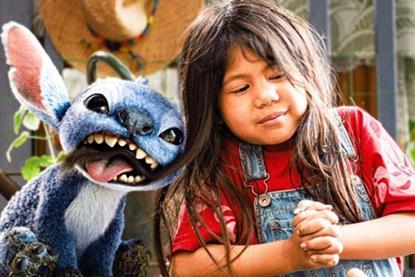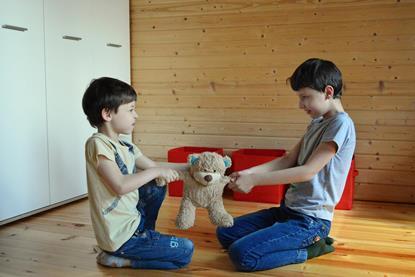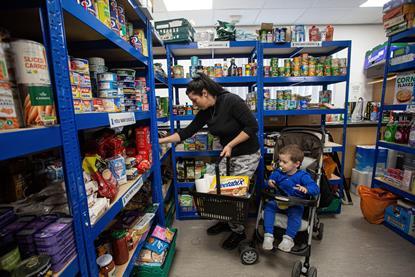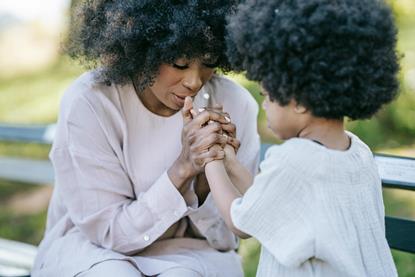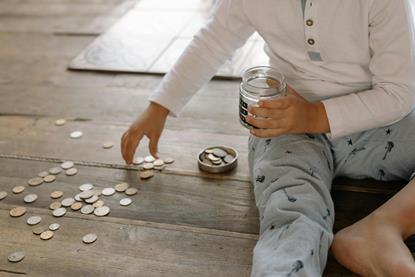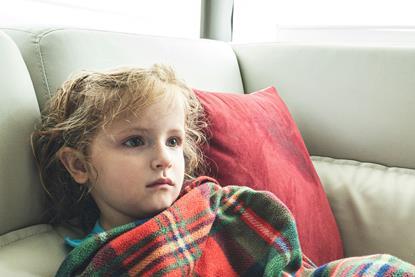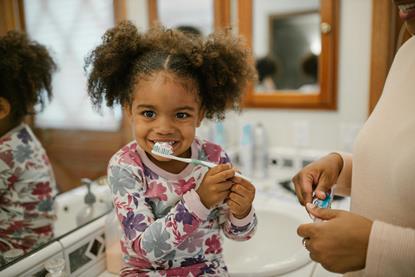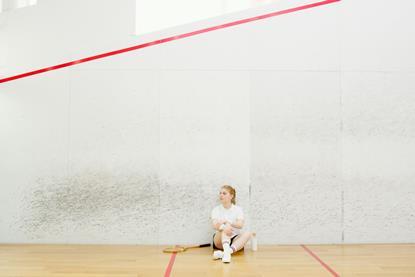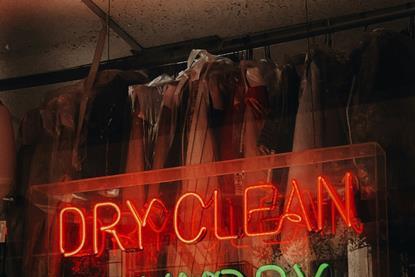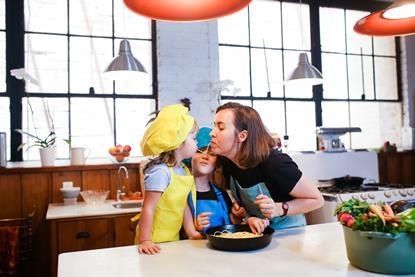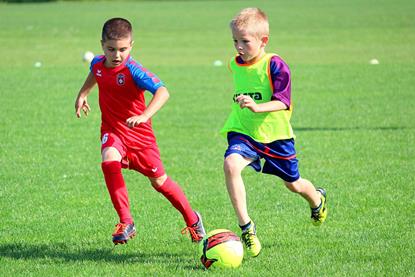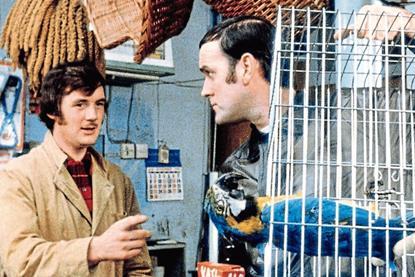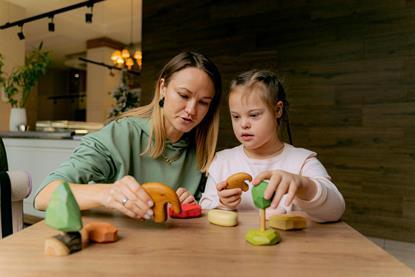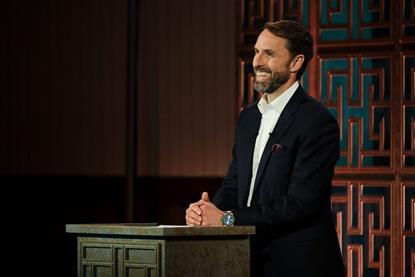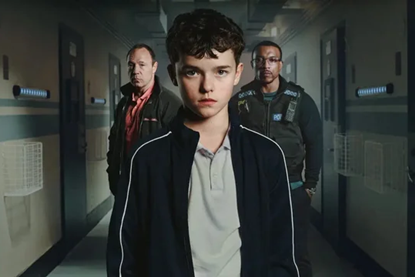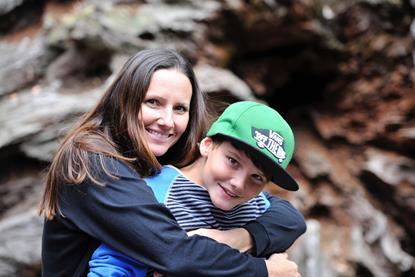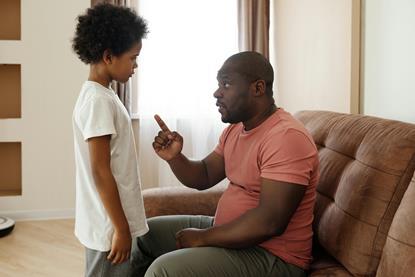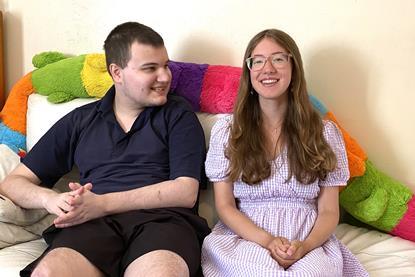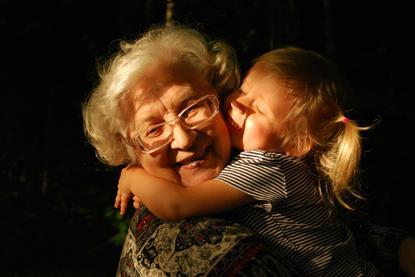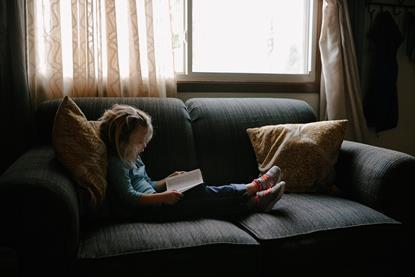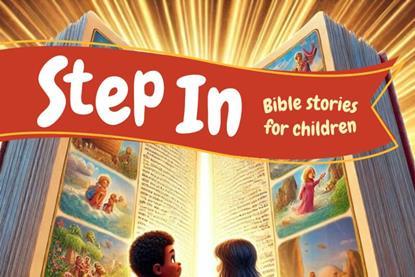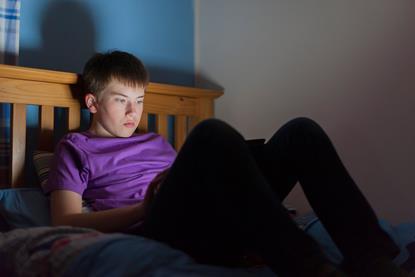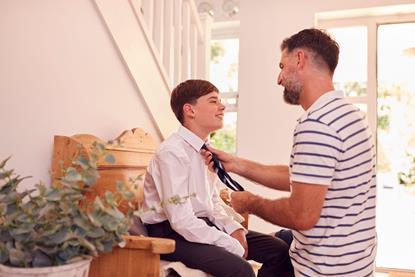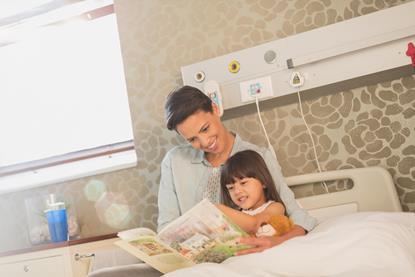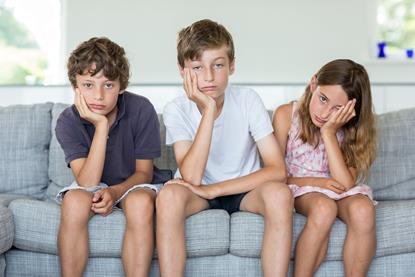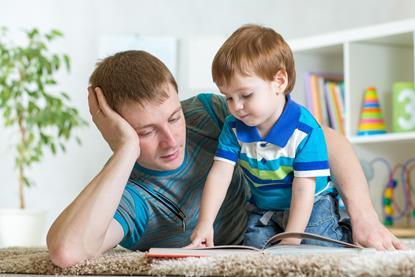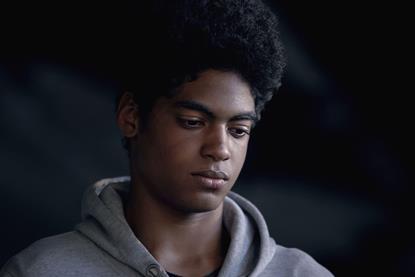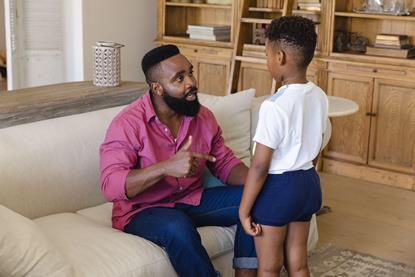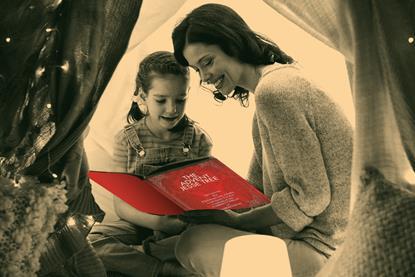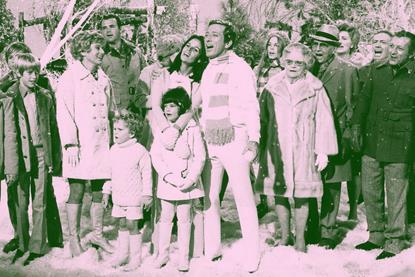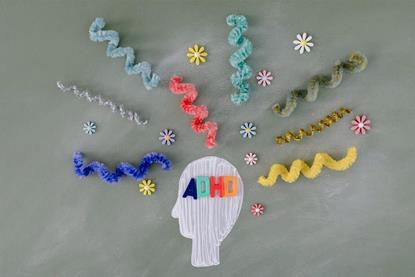Parenting
What does it mean to raise children as faithful followers of Jesus? This category offers Christian insight on the heart of parenting — from discipline and family routines to biblical values and spiritual formation. Whether you’re looking for encouragement, ideas, or a fresh perspective, these articles will support and challenge you in your parenting journey.
Why Christian parents should not rush to call misbehaviour sin
Not all challenging behaviour is sin - Kate Orson helps parents untangle childishness from wilful disobedience and discover why connection, empathy, and loving boundaries reflect the heart of Jesus
How can Christian parents break down barriers to worship for children and teens?
When parents make singing a natural part of life, children discover that worship is for everyone—not just great singers—and that songs can shape faith for years to come
Dreaming of escape won’t solve the tech battle for Christian parents
Juggling smartphones, social media rules, and the dream of escape, Andrea Zanin explores why finding balance—not blanket bans—is the messy reality for families raising kids in a tech-obsessed world
As Christian parents how can we help keep our daughters safe in an unsafe world?
From street harassment to online threats, today’s world demands Christian parents step up with honest talks, safety plans, and spiritual resilience for their daughters
I’m a Christian parent who reads fairytales to my children - this is why
Ally Townsend shows how Christian parents can use fairytales and ancient stories to inspire courage, highlight hope, and help children see the ultimate happy ending in Christ
2 ways Christian parents can help their children engage with Holocaust Memorial Day
As the world marks Holocaust Memorial Day, Jenny Sanders encourages parents to talk honestly with their children about history, faith, and forgiveness, using stories like Anne Frank and Corrie ten Boom to spark meaningful conversations
When divorce hits home, children need people not chatbots
As new AI platforms like Split Happens emerge, Kate Orson warns that only real relationships and Christ-centred care can address the deep wounds of family breakdown
If your children leave the church, there is hope
Paul Mallard’s new book breaks the silence around children who walk away from Jesus, equipping parents and churches with grace, truth, and the courage to keep praying
Christian parents can combat worry with the truth that their children belong to God
In his mini series Robin Barfield has reminded us of things we should not forget as Christian parents - In this his last installment he reminds us that our children belong to God and how transformative that is to how we parent them
Why Christian families need everyday faith, not new year’s resolutions
As the post-Christmas routine returns, it’s consistency—not motivation or goals—that shapes lasting faith in our homes. Anna Hawken shares how small, daily habits help children and parents grow deeper roots in God together
Justin Stuart: "the biggest stage that you will ever stand on is in front of your family"
Author and YouTube star, Justin Stuart encourages Christian parents to prioritise time with their families and modelling faith to their children
Don’t be scared of puberty - It’s God’s training ground for growth, not a problem to fix
Sara Taylor explores how adolescence is a season of uneven growth and identity formation, urging Christian parents to trade anxiety and control for presence, patience, and trust in God’s timing
Rethinking Christian parenting: The book challenging discipline myths in the Church
Kate Orson explores how The Myth of Good Christian Parenting questions decades of popular advice and encourages Christian parents to embrace gentle, Christlike leadership at home
Most learning happens before the age of 32 - Here’s why that matters for Christian parents
Recent brain development research suggests our children don’t fully grow up until their early 30s - Jenny Sanders unpacks the implications for Christian parents
Christian parents: Our job is to help our children become mature in Christ
In his mini series Robin Barfield has reminded us of things we should not forget as Christian parents - In this his 6th installment he reminds us that our children are changing, maturing and becoming something and we need to be a part of that
Grandparents are key to the faith of youth and children
Grandparents have so much to offer their grandchildren in terms of faith but they are often unsure how to approach it within their families - Anna Hawken from Parenting for Faith has some idea of how to help
Tattoos are fine - A Christian parent’s perspective
Cultural acceptance of tattoos has changed a lot in the last few decades - But as our children near the age of 18 what should we think about them getting one?
Allan Finnegan: “Don’t get so caught up in church or work that you miss out on your family”
Allan Finnegan’s terminal cancer diagnosis has made him reflect deeply on life and faith as a Baptist minister, stand-up comedian and being a dad
Lucy Peppiatt: “My parents were laid-back about faith, which helped us feel held, not pushed”
President of Westminster Theological Centre, Lucy Peppiatt, counsels Christian parents to not sweat the small stuff
Ryan Frederick: Christian parents need to “say no to good things to say yes to the right things”
Ryan Frederick, co-founder of Fierce Marriage and Fierce Parenting in the USA, encourages Christian parents to be intentional about marriage and family life
Sally Lloyd-Jones: “God chose you specifically for your children and your children for you”
New York Times bestselling writer of over 40 books for children, including The Jesus Storybook Bible, Sally Lloyd-Jones, encourages Christian parents to see that they’ve been called to be faithful not perfect
Children can experience God now - parents need to look for that and name it
Sometimes, as Christian parents, we can be so obsessed about our children’s future that we miss what God is doing in the present - Robin Barfield explains
5 things that help make a good Christian dad
There has been a lot of media interest in fatherhood recently - Gareth Crispin distils the lessons we can learn for Christian dads
Christian parents can usefully use KPop Demon Hunters to explore themes of idolatry and the Kingdom of God with their family
A Church of England School in Dorset has just banned singing songs from KPop Demon Hunters - Charles Merritt, however, suggests that the film can be a great springboard for important family faith conversations
Look closer, you’ll find the first Eubank Jr - Benn fight was secretly a sermon on fatherhood
With Chris Eubank Jnr and Conor Benn due to box again this week-end - Augustus Gomez looks back to their fight in the summer and what it says about fatherhood
How Christian parents can respond to bullying
This week is anti-bullying week - Ruth Evans considers what Christian parents can do if their child is being targeted
6 things Christian parents can do to raise children who care for God’s creation
As the latest UN conference on climate change starts - Mari Williams helps Christian parents to start conversations at home around how to look after God’s creation better
When your child does something wrong are they to blame, or is it the influence of their friends?
In his series on things Christian parents should remember Robin Barfield encourages us to consider both the sin within each child as well as the way in which outside pressures are to blame
Your child is uniquely gifted by God
In his series on things Christian parents should remember Robin Barfield encourages us to consider the way each of our children is uniquely gifted by God
Your child is a gift from God
In his series on things Christian parents should remember Robin Barfield encourages us to focus on the truth that our children are good gifts from a good God
The primary place of patience in Christian parenting
Patience is central to good parenting and yet so hard to nurture - Tabitha Heathcote encourages parents to seek patience through seeking God himself
Andrew Stewart-Darling: ‘Cut yourself some slack, be kind to yourself, and be at peace with imperfection’
Writer, mentor and consultant, Andrew Stewart-Darling champions the role of humility and gratitude in Christian parenting
4 ways Christian parents can help young people navigate violent language in worship songs
Our young people are being exposed to increasingly violent language, but are the songs we sing in church helping? Michael J Tinker provides Christian parents with food for thought
6 ways Christian parents can help encourage their children to give
In a cashless society giving is not visible, so helping youth and children think about giving can be tricky - Jenni Whymark has some ideas Christian parents can try
3 tips for starting ‘Bible times’ with your kids
Thinking about starting to read the Bible with your family can be daunting - Carl Laferton has 3 tips to help get you going
Your child is created by God - If that's not your starting point then you've got a problem
At the start of this new series Robin Barfield helps us to remember that our children are created by God and teases out what that means for our parenting
4 things Christian parents can do to build a good relationship with youth and children’s leaders
A good relationship with those leading the youth and children’s ministry is a significant aspect of good Christian parenting - Ali Campbell explains how such a relationship can be nurtured
AI will change the job market for our children but Christian parents needn’t fear
AI is set to revolutionise the job market - Kate Orsen reflects on how Christian parents can think through the challenges this poses for their youth and children
How Christian parents can rebuild their home after the destruction of domestic abuse
After leaving an abusive relationship it can feel like a bomb has destroyed your life and those of your children - Caroline Chalkley helps Christian parents pick up the pieces
6 ways to help your child beat the post summer blues and thrive in church and youth group after camp
Alice Pinney considers ways Christian parents can help their children and young people back down safely from the high of summer camp
How Christian parents can help their children when they lie
Kate Orson helps Christian parents look behind the lies their children tell to see what is going on beneath the surface
6 questions for Christian parents to ask their children as they approach the new school term
Dawn Kay suggests all families take time to review the last 12 months in preparation for the new academic year
Solo parenting can be a lonely job but there are ways through
Dawn Kay brings biblical wisdom and pastoral sensitivity to the issues around parenting on your own
4 steps Christian parents can take to address the issue of p*rn
This week the Children’s Commissioner released a report on the deepening problem of youth and children accessing pornography. Robin Barfield thinks Christian parents need to deal with their own embarrassment so they can talk openly about the issues with their kids
3 ways Christian parents can help their teenagers see who God really is
Tanita Tualla Maddox believes it’s high time we started being far more open about faith with our youth and children
How Christian parents can boost the well-being of their children through the food they eat
Cancer Research UK has just released research tracking junk food advertising on young people’s social media feeds. In addition to the negative physical health implications of junk food, Nate Jones from the Ugly Duckling Company considers the impact on the mental and spiritual health of children and young people
Stories like Harry Potter can help Christian parents aid their young people through the 3 key challenges of adolescence
Adolescents face huge questions around identity, belonging and purpose and the best answers come from the gospel - Gareth Crispin explains why
Support for Christian parents of autistic children heading off to a new school this September
Transitioning to a new school is hard enough without the additional complexity of autism - Lynn McCann helps parents navigate a doubly difficult time
4 takeaways for Christian parents from David Attenborough’s new BBC animal documentary: Parenthood
Gareth Crispin explores how the latest offering from the BBC provides lots of opportunities for Christian parents to reflect on parenthood
The rise of permissive parenting, and how to take a gentle but biblical approach
Kate Orson invites Christian parents to consider the connections they are or could be making with their children and how that will impact behaviour
Scottie Scheffler is an example for Christian parents on getting priorities right
Lisa Skinner thinks that Christian parents have a lot to learn from the golfer who is at the top of his game
4 ways to train our children for spiritual battles
Do we sell youth and children short by not expecting them to be active in ministry? the team at Prayer Storm think we do
The summer holidays can be great times to bond with your children and develop their faith. Here’s how…
Things to try this summer - Keeping your children busy in the summer holidays
8 steps to address generational trauma
Thomas really wanted to help make breakfast. He was 4 and I was just plain tired. I had been up all night with the baby and had just about enough energy to feed him. Whilst my back was turned, he picked up the milk carton and proceeded to pour its contents all over the counter and onto the floor! A scream left my mouth, and my hand went up to hit him. Before my hand connected with his body, I froze and thought “you’re just like dad.” Suddenly, flashbacks of my own childhood flooded my mind, and I remember thinking that this was not what I wanted for my own children. I saw how much of my parenting was ……
Neil O’Boyle: As parents ‘we couldn’t hide the fact that we were flawed, but we could be authentically flawed’
Neil, diving right in, what do you think is the key thing to remember in Christian parenting?
Holy habits for the school holidays: Helping your family stay close to God this summer
The rhythms and routines of mealtimes, school runs, work, clubs, and activities – though sometimes monotonous – are the familiar patterns that give our lives structure, help things stay on track and often provide small pockets of peace and predictability in busy family life. It’s within these routines that we can make space for God and discipling our children.
Mufasa: The Lion King is a picture of life after exams and school
At the end of last year, the Disney film Mufasa: The Lion King came out. I highly recommend it. It’s a story about trial and triumph, fighting and freedom – perhaps providing some much-needed inspiration for many young people who are bemoaning the stress of school. Many have finished their exams and are enjoying the clear skies and clear diaries; yet it will be a couple of weeks before others break up from school. This is the time to remind young people of that ancient wisdom, ‘work hard, play hard!’
Gemma Hunt: ‘your child doesn’t need a perfect parent - just a present one’
Gemma, what do you find difficult as a mum? I think it’s fair to say that parenting has never been a walk in the park—but wow, in this digital age, it feels like we’re facing a whole new level of challenge. Our own parents had their struggles too, of course, but now we’ve got smartphones in our pockets, social media on demand, and AI popping up in everything from homework help to shopping lists. It’s fast, it’s convenient… but if we’re honest, it’s also exhausting.
What’s your parenting style? Are you a dolphin?
There have been several animal parenting styles that I’ve talked about in the last few articles. Drawing on Solomon’s wisdom and the common grace that comes from the world, these styles can give us clues to self-reflecting on our own parenting styles.
Should you let your child play sports on a Sunday?
A few years ago Christianity Today, a widely read magazine in America, published an article by Megan Hill, a mum who is going through this dilemma in real time. Her son was a good young baseball player with games on a Sunday. In her piece she wrestled with this problem and concluded:
3 tips to help your youth and children love your church
As soon-to-be empty nesters, it seems we’ve nearly completed each level of the Christian parent’s “We’re all going to church this Sunday” quest!
Why Christian parents don’t embrace their children’s artistic gifts and what we can do about it
Picasso said: “Every child is an artist. The problem is how to remain an artist once we grow up”
The Serpent and The Seed: An online game that is a beautiful, generous gift to the world
Anyone familiar with Genesis 3:15 will immediately spot that this game has something to do with the Bible. For those less familiar, it’s an intriguing gateway into another world…
If you’re dreading the summer holidays the joy of the Lord can be your strength
The school holidays will soon be here. For some families that’s a brief respite – children who struggle with school and are misunderstood in the classroom will experience a welcome relief. But for others it can bring difficulties. Children who rely on the security of the classroom routine can be completely thrown out by the unpredictable weeks stretching before them. Not all summer holiday play schemes can meet the requirements of children with additional needs, so it falls to mum and dad. It’s doubly hard, of course, for single parents.
Christian parents should not let their children watch the new Harry Potter series
As an ex ‘new-ager’I want to share some concerns about parents letting their children watch TV series and films like the new Harry Potter series on HBO.
Christian parents should be fine with letting their children watch the new Harry Potter series
When I was younger, the Harry Potter books were still coming out. I remember my dad specifically taking my older sister to wait outside the bookshop to get a copy of The Deathly Hallows – and then, horror upon horror! – making her go to bed rather than read it through the night.
Answering your child’s questions: What’s the point of praying? Because God doesn’t change
We know that prayer matters, but if your home is anything like mine then the fast pace of busy family life often means it doesn’t get the time or the focus that you wish it did. With conflicting clubs and extracurricular activities routines are all over the place and bedtimes are not as consistent as they once were. Mealtimes are chaotic and often filled with others around the table too, and those special moments when you’re all together as a family are too few and far between.
5 ways Christian parents can engage with sex and relationships education in school
No parent relishes the prospect of ’The talk’ with their kids. And when it comes to the birds and the bees, Christians are no exception; talking about sex and relationships can be embarrassing for both parents and children. Uncertainty, or fear of “getting it wrong” often lead mums and dads to stay silent- even in Christian homes. My husband and I recently bit the bullet and broached the topic with our eldest son; it’s safe to say there were a few awkward giggles and some very red faces!
Getting the most out of school sports day - A guide for Christian parents
Amongst all the emails that come in from our son’s school, the one we open quickest is the one about sports day. Check the date, clear the diary, not to me missed!
3 helpful qualities for Christian dads to foster this Father’s Day and beyond
On June 15th this year, families across the nation will celebrate Father’s Day. Fatherhood is likely to bring up different emotions in families. For some – hopefully many – emotions will be positive, and the day will be a chance to give thanks for the dads within the home. For others, the day will bring up mixed emotions due to the absence of a father, or perhaps a dad’s death. Churches which engage with the Father’s Day celebration would be wise to remember these various experiences – while also encouraging dads (and male role models within the church) in their midst.
Playing is good for youth, children and their communities - here’s how Christian parents and churches can encourage it
Today the Raising the Nation Play Commission released it’s report Everything to Play For: A Plan to Ensure Every Child in England Can Play - it shows that spaces and opportuntities for play in the UK are being eroded and that perhaps unsurprisingly youth and children in the UK are some of the unhappiest in Europe. How can parents and churches play their part in addressing this? Well before we get to that let’s wind back and think what play actually is.
Answering your child’s questions: Why is God a Father?
With Father’s Day just around the corner you’ve probably begun to notice that the shelves have filled up with bright ties and blue socks declaring “BEST DAD EVER” and “DAD YOU’RE ROARSOME!” (who actually buys those?) Teachers are scrolling Pinterest for new ideas of cute crafts, and our kids are spending their days creating beautifully unique handprint cards - just like everybody else! Whilst this day is quite rightly a celebration of the men in our lives who care so wonderfully for their families, it is also a painful reminder of what has been lacking for so many others.
Paul Kerensa: Parents ‘take sleep when you can and be kind. Not every day will be easy – but that’s OK’
Welcome Paul, thanks for agreeing to share your experiences with us, can we start with you telling us a bit about yourself?
What’s your parenting style? Are you an elephant or a tiger parent?
King Solomon advised the sluggard to learn about hard work from watching an ant. What animal would he suggest a parent learn from? There are a number of choices and I wonder which species you might set as your role model. Perhaps you are like the tortoise – slow and patient with your children, compared to the hare who rushes them from task to task. Or perhaps you are like the eagle swooping over their heads, ready to plummet down to their level at any necessary moment. Or perhaps you are like the Mother Hen sheltering them under your wing, after all that’s a biblical picture (Luke 13:34).
5 ways to help children respond with kindness and faith when the world doesn’t make sense
Last week, we went to see the Liverpool parade. The sun was out, the atmosphere electric, and spirits were high. As a family, we navigated the usual big-crowd quirks: people pushing in, kids on shoulders blocking views, random traders weaving through the chaos selling knock-off scarves and super loud horns. It sparked some good conversations about patience (we were waiting for seven hours!), and about kindness, as we encouraged the children to make room for people who couldn’t see, invited the smallest to go to the front, and choose to be considerate even when it felt like no one else was.
Chloe Swart: You don’t have to be a superhero parent. Just love Jesus deeply and live that out in front of your kids
Chloe, can you describe what it was like growing up in a home where your parents were so actively involved in mission?
Lilo and Stitch – Finding life after death
Film: Lilo and Stitch
Marriage matters: The importance of Christian parents making space for each other
A few weeks ago, headlines and social media feeds were flooded with an image of the Prince and Princess of Wales embracing as they gazed out over the beautiful landscape of the Isle of Mull. The moment marked their 14th wedding anniversary, and they chose to return to the Scottish island they had first visited back in 2003 while dating as students at St. Andrews.
If God is all powerful, what’s the point of praying?
If you’re parenting a pre-teen like I am, then in the midst of all their hormonal lethargy, you’ve probably heard this question… “What’s the point?”
Helping your child start school with confidence and faith
The school places have been finalised, and the countdown has begun. Whether your child is starting school for the first time, entering a new year, or starting at a new school, new beginnings are a big deal — and change is always hard. So how do we prepare our children in mind, body, and soul?
Dave Newton: As a parent ‘put your confidence in God - in the one who holds your child more tightly than you ever could.’
OK so I am Dave Newton. I’m an Elim Pentecostal, ordained minister, working as the National Director of Scripture Union (SU) England and Wales. My background has got two sides to it. One is youth mission and ministry – I worked for Youth for Christ (YfC) for many years and now work for SU. The second side to my work is that in-between I was the principal of Regents Theological College in Malvern and director of training for the Elim movement. Born and brought up in Merseyside I now live in Malvern which is a beautiful part of the world, married to Liz and have three children who are all adults.
Aren’t all religions basically the same?
I don’t know if you’ve ever done this thought experiment. Humour me for a moment.
Sport, faith, and friendship: Evangelism for the everyday parent
Every Sunday morning, thousands of parents gather on the sidelines of children’s sports fields across the country. Some stand quietly with their coffee; others make small talk while the game unfolds. Earlier in the week, many are already at swimming pools before sunrise, watching through glass panels or sitting in cafés while their children train. For those in more competitive or elite pathways, weekends are spent travelling to competitions – families packed into cars, clocking up hours together, waiting and watching.
What’s your parenting style? Are you a helicopter or a satellite parent?
You have probably heard of helicopter parenting - the idea that parents hover over every move their children make, ready to swoop in and protect them from harm. This style has been made even more possible by smartphones: I can see where my children are at any moment. Is he going to get home in time for dinner? Why is she in the park when she should be at dance class? I just want to check that they both made it home from school.
Parenting without pretence: How vulnerability builds stronger families and communities
It’s a sunny Tuesday morning in London and everyone in my family is getting ready for their respective days – a dad, a mum, and five kids. What could possibly go wrong? As it turns out… socks. Socks can go very wrong.
Trussell reports food poverty is increasing: Christian parents and churches can provide hope in these difficult times
You don’t have to look very hard to see that the majority of people in the UK are feeling the pinch of the cost-of-living crisis. Our money has to stretch further. Our jobs have become more unstable. The price of food has risen. We know that some people have to make a choice between heating and eating. But how bad is it really? What can we do as Christians to help alleviate some of the pressures from the families we might know. And how, as a Christian, can I survive in the middle of it all, living in a house with one income, three children and a high rent bill each month?
4 ways to celebrate your child's birthday, honour God and not break the bank
The celebration of a birthday brings excitement, anticipation, and lots of fun. Celebrating a child’s birthday increases their self-esteem, sense of belonging, and overall well-being. But are parties now becoming too expensive to host given the current climate? A recent article in The Times suggests they are, with many parents delaying parties—leading to a dip in the party industry in the UK.
Olly Goldenberg: 'I am so grateful to be able to pass on the spiritual legacy of my parents to my children'
I was born into a non-Christian home. My Dad was a nominal Jew, raised orthodox in Sudan he moved to the UK and had long since left the synagogue behind. My Mum, a gentile, would have called herself a Christian, but this was more a matter of culture than heart submission to the Lord. More a wedding and funeral follower than a devoted disciple of Christ. That all changed when I was 4 years. Both my parents became Christians around the same time attending church became a regular part of our lives.
Answering your child's questions: What’s the point of praying? Because God is all powerful
Praying with our children is one of the most meaningful and powerful parts of parenting. In fact, teaching them how to pray is quite possibly the most significant thing we could ever teach them! But it is often one of the hardest habits to help them form.
Reframing our failures: Good enough parenting is good enough
I grew up in an era where pass and fail were clearly defined. Teachers would liberally use red pen to denote wrong answers (especially in my maths book), and there was no sign of EBI (“even better if”) or just a coloured dot alongside answers that weren’t right.
Addicted, anxious and online: What every Christian parent needs to know about social media and wellbeing
When 15-year-old Anna decides to embark on a fitness regime, she soon discovers social-media posts offering nutrition advice. Embracing her new healthy lifestyle enthusiastically, she begins sharing her progress online. Within weeks, she finds herself scrolling through dieting regimens. As well as working out at the gym, she begins limiting her food intake. Her social media use quickly spirals from anorexia and bulimia sites onto pages promoting self-harm.
5 ways Christian parents can teach their youth and children about generosity
Nurturing a spirit of generosity in children and young people is integral to encouraging their faith. The more they understand God’s lavish generosity towards them, the more likely they are to want to be generous themselves. A generous spirit will, in turn, deepen their faith as they witness the positive impact of their generosity on the world around them. Parents clearly have a pivotal role to play in shaping their children’s attitudes towards giving—but how exactly can they do this?
Safeguarding and intergenerational relationships: Helping Christian parents explore the tension
You are running your first-ever Messy Church session. After months of planning, training the team, advertising the date, and talking to everyone you know about coming along to the launch, people start to arrive, and your church hall is now looking full. You are busy welcoming people and ensuring that your team has everything they need when you notice that your welcome desk team member is waving you over. You weave your way across the room to check that they are okay.
This Mental Health Awareness week, Christian parents can turn to the Bible for help with the well-being of their children
As Christian parents, we’re probably used to wanting to find out what the Bible has to say about the issues facing us and our families. We want to use scripture to help us navigate the world, and whilst sometimes we can easily see what the Bible has to say on a topic (there is an abundance of wisdom on navigating conflict well, for example), at other times it can be a little trickier.
Thunderbolts* – Redemption in the face of darkness
It’s been a bumpy road since Endgame but this is a fantastic addition to the Marvel universe because it’s actually able to stand on its own as a good film.
Pop the Balloon LIVE: Helping Christian teens navigate identity in a swipe-and-judge culture
If you’ve not yet come across it, Pop the Balloon is a new dating series on Netflix that’s grown in popularity after being streamed on TikTok. A contestant walks along a line of potential matches and decides whose balloon to ‘pop’, effectively rejecting them based on first impressions alone. It’s a high-pressure test of appearance, confidence, and social power. Who’s attractive? Who’s awkward? Who gets left standing? No conversations. No background. Just a snap judgment, broadcast for millions to see.
When Sephora meets Scripture: Helping our girls see true beauty
It was November 2024, that time of year when I ask my children for their Christmas lists to avoid any disappointment on 25th December. But this year felt somewhat different with my three daughters. As I scanned their lists, I found myself searching in vain for the familiar comforts of LOL Dolls, Barbie Dreamhouses, and Lego Friends sets. Instead, I was met with a line-up of brand names completely foreign to me — Laneige, Bubble, Rhode, Sol de Janeiro, Drunk Elephant, Fenty, Mario Badescu (had Ken been replaced by a Romanian counterpart?). Then it struck me, with a twinge of sadness, that my daughters had quietly moved beyond the innocent world of toys, trading them for the sophisticated realm of skincare and beauty products. Even my nine-year-old, surprisingly well-versed in the world of luxury brands, appeared caught up in this early wave of consumer savvy. It left me wondering: were they growing up too fast, or was I simply unprepared for how childhood itself has evolved?
When parenting advice doesn’t work: Understanding PDA in autistic children
“Have you tried praying more for your child?”
Taming gaming: A faith-based approach to video games at home
Games are a helpful way to entertain children between the more important parts of family life, school or church life, but we need to be careful they don’t take over. Such advice was ringing in my ears when I started writing my book, Taming Gaming. I wanted to get to the bottom of what advice parents, carers and youth workers really needed about video games.
What does God look like?
Once upon a time, I was helping my 5-year-old brush her teeth, and she asked, “Does God have teeth?”
3 ways parents can get teenagers thinking about AI and faith
Every day, we’re using tools that felt like science fiction just a few years ago. Do you have a textbook chapter or article you don’t understand? AI will turn it into an entertaining podcast. Fancy a song? AI will write music from thin air. Say “make me a video,” and sure enough, it will. Not always great, but frighteningly fast… and getting better by the day.
How to raise children who know they are loved by God - and you - even when they don’t “perform”
In part one, we explored the beautiful truth that God made sport as a gift, a joy, and a way to reflect His creativity. But let’s be honest: that can feel idealistic. We don’t live in a perfect world. Sport, like life, involves disappointment—injustices, injuries, losses, and rejection. So how do we help our children thrive in that reality?
What’s your parenting style? Are you a dry-clean parent?
One of the features of modern life is that we have learned to outsource. I can no longer fix my car, my computer, or my dishwasher—and I know I cannot ‘fix’ my children! These things are tremendously complex, and I am more likely to do harm than good if I tinker. The solution for the first three is to take them to an expert who understands them and can do something about it. I can rest assured that the mechanic at the garage can sort out my brakes, my suspension, and my tyres, and get me safely back on the road. I even have an expert in dishwashers called Geoff, who I occasionally call around. He sucks through his teeth, then gets on with the job and charges me next to nothing.
A woman’s place? Rethinking work, home, and biblical calling
I remember the first pay packet I received; it was actual cash in a small brown envelope and was the result of my eight hours in a local coffee shop. I loved that job—the freedom it gave me, the finance it provided, and (retrospectively) the experience it gave me of the working world.
Motherhood as ministry: The case for staying-at-home
From the beginning of time, the role of women has often been tied to domesticity and child-rearing. The traditional roles undertaken by women—roles sometimes looked down on today—positively defined many of the matriarchs of the past. Yet today, society critiques the maternal homemaker stereotype and instead celebrates the contributions women have made beyond the home. With the exception of Mothering Sunday, the role of ‘motherhood’ and ‘homemaker’ now seems little celebrated or advocated for.
Beyond the endless scroll: Protecting your teen’s heart on TikTok
TikTok, known for its viral trends and challenges, has quickly become one of the most popular social‑media apps among young people. British teens spend an average of two hours a day on TikTok. With its creative, fast‑paced content and personalised algorithm, it’s no surprise that teens devote so much time to the app. However, such a time commitment inevitably shapes how they think, grow, and interact with the world.
Why God invented the game: Five faith‑filled reasons sport matters to your family
If you’re reading this, I guess you are parenting a child who loves sport—possibly to the point of obsession. Maybe you love it too. Whether your weekends are spent on muddy sidelines or at early‑morning training sessions, you’re probably asking deeper questions about how all this sporting enthusiasm connects with your Christian faith.
Fiction as a faith‑builder: How Christian parents can use stories in discipleship
Long ago, before my husband and I had children, we were staying with a family who had teenagers. Together we watched a TV series featuring an alcoholic. I was surprised that the parents allowed their young people to watch it, but the ensuing discussion proved invaluable.
A Christian parent’s guide to mandatory reporting: What’s going on and why it matters
Trigger Warning: This article contains information about child sexual abuse
What’s your parenting style? Are you a lawnmower?
If you could describe your parenting as a picture, what would it be? A helicopter always circling around; a bulldozer flattening everything in your path; a gardener, carefully nurturing tender stems?
Gifts not grades: Recognising every young person’s God-given talents
The summer term in schools means different things to different ages of children and young people. For some it is the term of sports day, end of year shows, outdoor PE lessons and being allowed to play on the school field. For our older ones this term brings very different events ahead; this is the term of exams, and all that they bring with them.
There is no good parenting without Good Friday
We spend a lot of time on NexGen providing helpful, biblical, practical articles for Christian parents on all manner of subjects: films, social media, additional needs, disability, schools, awkward questions, reviews of Christian resources and much more. But the most important element in Christian parenting is you. That sounds obvious, after all the clue is in the word! But sometimes we might forget the centrality of that truth. Your parenting starts with you. Not the skills, not the tips, not the information – you.
The online world: Friend or foe for Christian youth and children?
We are all increasingly aware of the role that online spaces play in our daily lives – from shopping to entertainment, work to recreation, and even chatting with the postie through the doorbell. Life is now lived in a hybrid reality that is here to stay.
When church attendance isn’t simple: Parenting, faith, and the beauty of flexibility
When our children were young, attending church on Sundays and midweek was a regular, prioritised part of our weekly rhythm. If you’d asked me back then, with toddlers in tow, what parenting teenagers would look like, I’d have confidently told you church attendance would be mandatory.
It takes a village: Rediscovering biblical parenting through community
Think of how often the wider faith community shaped the lives of biblical characters. When Jesus was 12, his mum and dad found him in the temple, sitting among the teachers, listening and asking questions – absorbing the wisdom in the room. He gravitated towards those who could teach him and guide him. Moses was raised by his biological mother, Pharoah’s daughter and the Egyptian royal court. His mum saved him from certain death, but it took the care, protection and the influence of different people from diverse cultures to shape him into the leader he became. Timothy’s faith was nurtured by multiple generations of women before Paul stepped in as a spiritual mentor. And Samuel – his mum, Hannah, entrusted her son to the care of the temple community. Orphaned Esther was taken in by her cousin Mordecai, who raised her as his own daughter and played a crucial role in God’s plan to save the Jewish people from annihilation.
Finding peace after loss: Trusting God while supporting your child’s grief
Grief is one of the most challenging experiences that we endure in life. Whether it arrives suddenly or evolves over time, nothing fully prepares you for the plethora of emotions that it brings. When my father passed away last year, the grief was overwhelming. Though I continue to hold on to my faith, there are days when the weight of his absence feels unbearable, and the notion of ‘healing’ seems distant.
From headlines to hope: How Christian parents can guide youth and children through troubling news
The news isn’t easy for anyone to hear right now, least of all our children. From war and political divisions, to natural disasters, the headlines are enough to fill a grown adult with terror, let alone a young person.
A creative world with no imagination – A Minecraft Movie fails to craft a story
Film: A Minecraft Movie
Answering your child’s questions: Is God dead?
“This parrot is no more! It has ceased to be! It’s expired and gone to meet its maker! This is a late parrot! It’s a stiff! Bereft of life, it rests in peace!”
Make your home the safest space for the biggest conversations with your youth and children
I don’t know if you knew this already, but you parents are scary to many younger youth workers.
Grace Keir: The 'young preacher of the year' on the prize that changed her life
In Spring 2023 16-year-old Grace Keir gave a talk on the subject ‘Why there is hope’. So far so unremarkable, plenty of 16-year-olds talk on similar subjects up and down the UK every week. But this talk was recorded and sent off to the Premier Unbelievable Youth Preaching Prize (with Spring Harvest) and Grace won.
Sweet dreams - Sleep is foundational for the mental and spiritual health of youth and children
I can remember as a child and teenager trying various tactics to push back my bedtime. It was like going to sleep was a bad thing and creating a battle or managing to get to bed later was somehow a worthwhile victory. As an adult I now enjoy getting a good night’s sleep – but occasionally there is a battle with myself to get off the sofa and make it happen.
Snow White – A kingdom of love, not fear
Film: Snow White
Having a Disability Champion can revolutionise life for disabled youth and children in your church
When we moved to our current church a few years ago, most people who talked with me for more than a few minutes soon discovered that I’m passionate about churches becoming more accessible for disabled people, including disabled young people and children. It wasn’t too long before our vicar approached me and asked if I would consider being the Disability Champion for our church. After praying about it, I gladly accepted. I want churches to not only welcome and include disabled adults, youth and children, but to also be places where they can feel that they truly belong. But what is a Disability Champion and why might your church need one?
As Gareth Southgate considers a generation of lost boys here are some reflections for Christian parents
In recent weeks, the success of the Netflix drama Adolescence, with its visceral depiction of a teenage boy’s crime and its effects on his family, has led to widespread conversation on boys and masculinity. Sara Taylor has already helpfully explored ways in which this might inform parents in their relationship with kids.
The new Netflix series Adolescence raises difficult but essential issues for Christian parents to grapple with
Few television shows capture the emotional chaos of growing up as honestly as Netflix’s latest series, Adolescence. Diving deep into the complex struggles faced by young people today, this is more than just a typical coming-of-age drama. With its innovative use of single-take episodes, its raw and poignant cinematography immerses you into a world of identity crises, societal pressure, online dangers, and the hidden pain of those caught in the fallout of serious mistakes.
Mothering Sunday: A chance to celebrate mothers and consider the implications of mothering for mission
One of the things that I love most about being a Mum is receiving hand delivered tokens of love. I have kept notes from my now-teenagers, one of whom, at six, declared they loved me nearly as much as their favorite toy. I have photos of a special stick found ‘just for me’ by a sweet little redheaded boy who is now as tall as I am.
Should Christian parents be prepared to smack their children? The case against corporal punishment
The Research is unequivocal; smacking children is harmful. Studies have shown that the negative effects of smacking include problems with social-emotional development, self-regulation, and cognitive development. Smacking also alters children’s brain response in ways similar to severe maltreatment and it increases the perception of threats.
Should Christian parents be prepared to smack their children? The case in favour of corporal punishment
It’s not an easy thing to talk about corporal punishment. Many British parents are wary even of broaching the subject with one another, let alone normalising it. For many people, the potential for justifying abuse is too high. Anyone defending a genuinely Christian view of corporal punishment should never justify abuse. But in our zeal to combat abusive forms of corporal punishment, we also risk eradicating this biblical practice altogether, forgetting that, when practised in love, it is intended for good not evil.
Siblings of youth and children with additional needs need support too - Here’s five things Christian parents can do
This article is written by Phoebe Ridout, who is the daughter of Mark Arnold (from the Additional Needs Alliance). Phoebe shares her experience of growing up as an additional needs sibling to her brother, James, as well as offering learnings for us all…
Helping your teen navigate Snapchat: A Christian parent’s guide to helping them flourish online
In today’s digital world, social media is a big part of many teens’ lives. Snapchat, with its disappearing messages, fun filters, and real-time updates, is particularly popular among young people. While these features can offer entertainment and connection, they also bring risks that parents need to be aware of. As Christian parents, it can be challenging to help our teens navigate platforms like Snapchat while keeping them safe, grounded in faith, and aware of the potential dangers. This guide will help you find that balance.
It’s not all in the head - Physical activity is really important for the mental and spiritual health of youth and children
In 2024 there were 9.3 million NHS Couch to 5K runs started in the year as people sought to get healthy. I really enjoy physical activity but there are times (especially at the end of a busy day or if it is cold and dark) that dragging myself away from a comfy sofa is quite a challenge. However, one thing I do know is that being active is good for me and I always feel better having chosen to abandon the sofa for exercise.
Christian parents will find that the Real Easter Egg collection from the Meaningful Chocolate Company is well worth trying
When it comes to Easter, there is one very important question that everyone should think about: When is it too early to eat a chocolate egg?!
The Garden the Curtain and the Cross is a great resource for Christian parents to try in the run up to Easter
As the last few remnants of the Christmas stock are in the seasonal sale aisle, in comes the chocolate eggs and hot cross buns. ‘Happy Easter’ is on bunting, hats, and toys everywhere we look. It can be difficult for Christian parents to navigate yet another consumer-hacked event in the calendar, as the colour pallet in the shops turns to pastel yellow, pink and green and the shelves are filled with chocolate eggs, and fluffy bunnies and chicks. So, how do Christian families manage this time of year as they explain the biblical account of the first Easter to children in a theologically accurate, yet age-appropriate way, especially as eggs, hot cross buns and bunnies can be easier to digest than sin, death and resurrection.
New Disney+ series for children Win or Lose has an openly Christian character in it, but that doesn’t mean it’s a complete cause for celebration
I’ve always loved Disney. I love the music, the predictability and the comfort of the familiar hero storyline. I marvel at the ability for its message to speak to 5-year-old me whilst still speaking to 45-year-old me, that’s meant that Disney has become a timeless classic in my life. There have however been some recent controversies, for example around Disney’s latest move to introduce characters who are gay (Strange World (2022) and Buzz Lightyear (2022)). This led some Christians to unsubscribe from Disney+. As a family we chose to keep our subscription. My children are now 21, 19 and 17, so Christian discussions around the cultural topics that Disney are highlighting are much easier. However, for many others, the way in which Disney portrayed gay characters accompanied by price hikes saw them choosing to cancel their subscriptions.
Christian grandparents: An underused resource in the faith lives of youth and children?
It’s over 20 years now since my Grandad moved on to heaven, but I am still inspired by his prayers and the role model of faith he was to me. His well-worn Bible was always open next to his favourite armchair, and he told me on so many occasions that whilst he couldn’t physically do much in his later years, so he would sit talking to Jesus for large portions of the day, particularly praying for me and my family. I will never forget him. His faith inspires me still now and will do for the rest of my life.
Nicotine pouches might not be as bad as smoking, but Christian parents need to know about this new fad on the street
Max (a 16-year-old boy) and Ollie (a youth worker in his mid-twenties) are at a youth club for young people aged 11-18. The discussion starts like this…
Christian devotions at home for children with additional needs are hard but worth working at
Hands up if you feel pressured by your church to do family devotions every morning. In some areas of our wonderful church, we can be left feeling that having daily family devotions is compulsory and doing it in the morning brings extra holiness points.
Step In - Premier’s new Bible podcast for children provides a rich resource for Christian parents
Teaching the Bible to children can be challenging, especially when trying to make God’s story meaningful for them. Over the past few weeks, my five-year-old son and I have set time aside before bedtime to journey through stories of the Bible together with the help of the Premier Step In podcast. This podcast invites listeners to step into biblical stories and discover what God might be saying to us through them.
We might be facing a pornography pandemic but Christian parents do have weapons to fight back with
The statistics are bleak. A 2023 report from the UK Children’s Commissioner found that by the age of 13 half of all children have viewed pornography. The porn that is freely available on the internet isn’t like the magazines of the past. Videos are often harsh, involving scenes of sexual coercion and aggression.
Now parents know which school their year 6 children are going to it’s time to start getting ready
Our youth and children make several big steps in their life but as parents and carers we make those steps with them and can be as concerned and nervous as they are. One of the biggest steps our children make is starting at secondary school and that certainly is a significant change for us parents!
Captain America: Brave New World – Can people change (beyond turning into a Hulk…)?
It’s been a while since we’ve had a smaller scale story in the Marvel Cinematic Universe – MCU – based on earth and it was a nice change of pace to have a story with more personal stakes than an alien invasion.
Our children and young people need the good news not mere happy news
Rachael Newham considers whether we are passing on an emotional prosperity gospel and what a healthier approach might be.
Parents are the key to bridging the gap between church and school
Ashley Nichols sees parents as playing a pivotal role in helping schools provide appropriate space and time for children and young people to consider the Christian faith.
Christian parenting in hospital: surviving through everyday faith
I’m sitting just to her side, wedged between the ward wall and my child’s hospital bed. For me and many other parents this has become a familiar yet daunting place. The rhythmic soundscape of oxygen masks and intermittent beeping from machines becomes our lullaby. It merges into the background of chatter and children’s cries, as we try to rest and get some sleep.
Hand in Hand Conference 2025: A call to action for children’s and family ministry
As the skies drizzled on a chilly Friday afternoon in February, the excitement surrounding the 2025 National Children’s and Family Ministry Conference, Hand in Hand, was anything but damp. Over 600 attendees arrived at the Bethel Convention Centre in Birmingham, where the warm, vibrant welcome was evident from the moment they stepped onto the red carpet. This year, the event found a new home, bringing with it a fresh energy and a renewed sense of purpose in children and families ministry.
Are smartphones rewiring my kid’s brain?
Robin Barfield wonders if Christian parents are sometimes a little too negative on the impact of smart phones and social media. For an alternative perspective click here.
Help! It’s February half term!
What is your family hungry for this half-term? I’ve put together a menu for you to peruse. It’s not a to-do list; there’s no pressure to tick things off, you don’t have to cram in as many things as possible to make half term a great time for your family (or at least bearable!).
Use the Gospel to transform your approach to your child’s behaviour
How do you approach your child’s behaviour? Do you find yourself giving commands or trying to persuade? Are you an authoritarian or gentle parent? As a Christian parent, you feel like you want to be able to give your child clear, simple instructions for how they are to behave and why. You also want to speak to their heart, not just their behaviour.
Childline’s tips on tackling loneliness are helpful. But Christians should go further.
This month Childline revealed that that they ran nearly 5,000 online or telephone counselling sessions with youth and children in 2023-24. There are lots of issues that worry youth and children but, in those sessions, the main concern was loneliness. This isn’t an outlying report. The Office for National Statistics said something similar about the same time period. Loneliness, it seems, is a big problem.
Discipline – Getting it right, biblically, legally and practically
When you think about discipline, what comes to mind? Perhaps it brings back memories of how you were treated as a child. Those memories could be positive or negative. As parents, we know discipline is key in helping children become well-balanced and responsible people, but the way you approach discipline can have a lasting impact on your child’s emotional and behavioural development.
A Parent’s Guide to Safe and Enjoyable Sleepovers
Sleepovers are a cherished part of childhood—an opportunity for children to bond with friends, and enjoy the freedom of staying up far too late! For parents, sleepovers are a big moment, as the fun also comes with the responsibility of ensuring everyone is safe and looked after. With stories of peer-on-peer abuse in the media, it’s natural for parents to have concerns. So let’s look at how you can make for an enjoyable and safe sleepover.
A parent’s guide to safeguarding
Most parents want to protect their children, ensuring they thrive in safe environments. For many families, this extends beyond their homes and into the various clubs and church communities where their children participate. Whilst these places may offer growth, friendship, or spiritual development, parents need to be aware that safeguarding ...
Setting yourself up for faith conversations in 2024
Do conversations with your kids come easily?
‘God with us’ in a family with additional needs
What is the toughest part of Christmas for you?
Is it OK to talk about Santa and does this undermine our words about Jesus?
What was your experience of Santa growing up?
Give glory to God this Christmas (and ditch ’the elf on the shelf’, please!)
Have you had to make adjustments to your Christmas routine?
Maybe Christmas doesn’t come from a store: how to be imaginative as you celebrate God's gift to us
Do you know your love language?
‘I find it easier to share Jesus with my children at Christmas: here’s how I do it’
Do you find Christmas is a good time to share faith?
How to share Christmas gifts (without going into debt!)
How many gifts do you typically buy?
‘Mum can I get a tattoo?’ What to say about tattoos and piercings in the light of the Bible
Have tattos been an issue in your home?
A how, a wow and a bow: a Christmas meditation for your family this advent
Have you lost the sense of wonder of Christmas?
‘Teamwork makes the dream work’: how one Christian family is tackling selfishness
Is selfishness the root of issues in your family?
Hitting children is harmful and God does not give harmful parenting advice
What kind of discipline methods do you use?
‘I hate you’ could be the start of a fruitful conversation. How to make a Christian response
Have you had to field unwanted personal attacks?
Emma Watson, Jim Carrey and Michael Phelps have it, but what should you be praying if your child has ADHD?
When did you first become aware of ADHD?
Yikes, I need 70 hours a week to fit it all in!
What is the maximum you have ever worked in a week?
Juggling childcare and a day job - how can Christian parents flourish?
Do you prefer working from home?
7 ways to prepare for relational change in your family
Was ‘leaving for uni’ your biggest transition?
The mistakes I have made as a Christian parent, have made me a better parent
Your worst mistake as a parent?
What Christians can learn from the Princess of Wales’ parenting rules
Where do you get your parental wisdom from?
When your parenting journey isn’t what you expect
How close has your parenting been to what you expected?
















